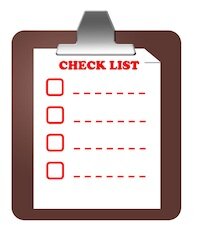I have been binge/purge free for 4 months on the 9th. I’ve had to tackle it from multiple levels. The only thing that has worked for me is not trying to regulate what I eat and trying my damnedest not to get caught up in what is ‘healthy’ and what is ‘unhealthy’. I eat what I want, make sure I get enough, and stop when I’m full. This was NOT easy initially and I still have moments of panic and insecurity. I know I’ve lost a bunch of weight but I still weigh X pounds. I’m fat. (I claim that title intentionally.) So, there is the body dysmorphia and fat phobia to be addressed.
therapy Archive
Make Recovery Your Own

I always say ‘I’ve been in recovery for…’ and then either go on to say ‘Just about two months’ if I’m talking about my eating disorder or ‘Just about seven years’ if I’m talking about alcoholism. I’m not sure why. I guess because I have come to believe that recovery is only recovery if I’ve been ‘clean’ for a length of time. I’m not sure why; I do not hold others to that standard. I’m pretty much alone in that category.
How to Have a Successful Self Care Day

I am now in the throws of working towards my recovery. Like many others in recovery, you may find yourself making drastic life style changes. Whether that be working out, quitting smoking, picking days to socialize, and participating in therapies or support groups. Many of you may also find that it is bloody exhausting. For […]
“What do you have to be depressed over?”

Ugh. Stop. Seriously, stop. I don’t get why people keep asking why I’m depressed, or what I have to be depressed over. Really, it’s a dumb question. Ok, though, in fairness, maybe it’s not actually their fault – society is probably to blame here. People say that something is depressing, or they’re depressed, and what they really mean is that something happened, and it sucks, it’s a bummer, they’d prefer it didn’t happen.
DBT Skills: Emotion Regulation

This is the final installment of the DBT Skills series. I want to say a special thank you to Breyonne for her hard work in writing this series – I know it will be useful for so many of our readers!
When I first heard the words ‘emotion regulation’, the first thing I thought was, Oh great. Another therapist trying to tell me that feelings are just feelings, they can’t hurt me, they can’t kill me, blah blah yadda yadda. And I’ve been to enough therapy, enough counseling, enough self-help meetings to know this, even if only theoretically. So I wasn’t prepared to learn a whole lot from this module. I couldn’t have been further from the truth.
“Good” Victim, “Good” Self-Care

I would like to welcome the newest member of our writing team, Nikki. In her first post with us, she talks about the expectations placed on abuse victims/survivors. Thanks for sharing with us, Nikki!
There was a thing going around Tumblr that I can’t find now because I still don’t totally understand Tumblr, and it was about being a “good abuse victim.” How a “good victim” never gets involved with abusers again. “Good victims” have scars to prove their abuse, they get everything documented, they go right into therapy. They get fixed, they don’t get abused again. “Good victims” publicly call out their abusers… or wait, is it that “good victims” just talk about it with people close to them and work it out themselves and never make a scene? I don’t know, I never did it “right.” I marched around calling myself a Survivor for years which, to me, was like a “better victim,” a stronger one. Cuz when you’re a victim you’re weak and when you’re a survivor you’re strong and you did “good victim” properly and graduated. I said FUCK YOU to victimhood like it was bad. But in retrospect that’s saying there’s a right and wrong way to handle abuse, and that’s bullshit. As a repeat VICTIM of abuse I wanted to look strong even though repeat abuse makes people look weak. But fuck these hierarchies of who handles abuse the best. I am a victim of abuse and I’m surviving.
My Eating Disorder Saved My Life

I have struggled with identity all my life. One word to describe me, one concept or community that I could cling on to and immerse myself in. Kind, intelligent, giving. Bipolar, female, gay. Of course nothing encapsulated me, described me wholly, no matter how hard I tried to identify. I needed definitions, definitions of me.
Cognitive Behavioral Therapy – A Primer

Trigger Warning: Mention of self-harm and suicide
Approaching therapy without really knowing where you’re going or why you’re doing what you’re doing can be scary, and at times, feel thoroughly futile. I know – I’ve been there, and I’ve done that. My feelings about my therapy ranged from a desperate need for it to work, to a feeling that my problems could never be resolved, to now, the light of day as I find myself from time to time using the techniques I’ve been taught and working to control my emotions.
First Therapy Session

In late June of 2010 our last child, a boy, was born. I could sense the distance between my wife and myself growing even further. Intimacy was non-existent, and she could barely stand to touch me now that I clearly had breasts. I had been blaming it on the pregnancy, but the gulf was widening, and I had no idea how much she really knew (which was in reality almost all of it). I was careless, barely even hiding it because she was so conspicuously ignoring it. At home, I was short fused and out of control, although less so since I quit the reserves.
Crisis Checklist

Inspired by work people have done on madness maps and mental health first aid kits, I decided to make a checklist/flowchart to use when I am having a particularly hard time or am in crisis. It was a good process for me to make because it helped me to really think about what has helped me or caused me trouble in the past. I really like that we can make these sorts of tools for ourselves instead of relying on more general (often judgmental) dos and don’ts or advice from people who never know us as well as we know ourselves.
- 1
- 2

